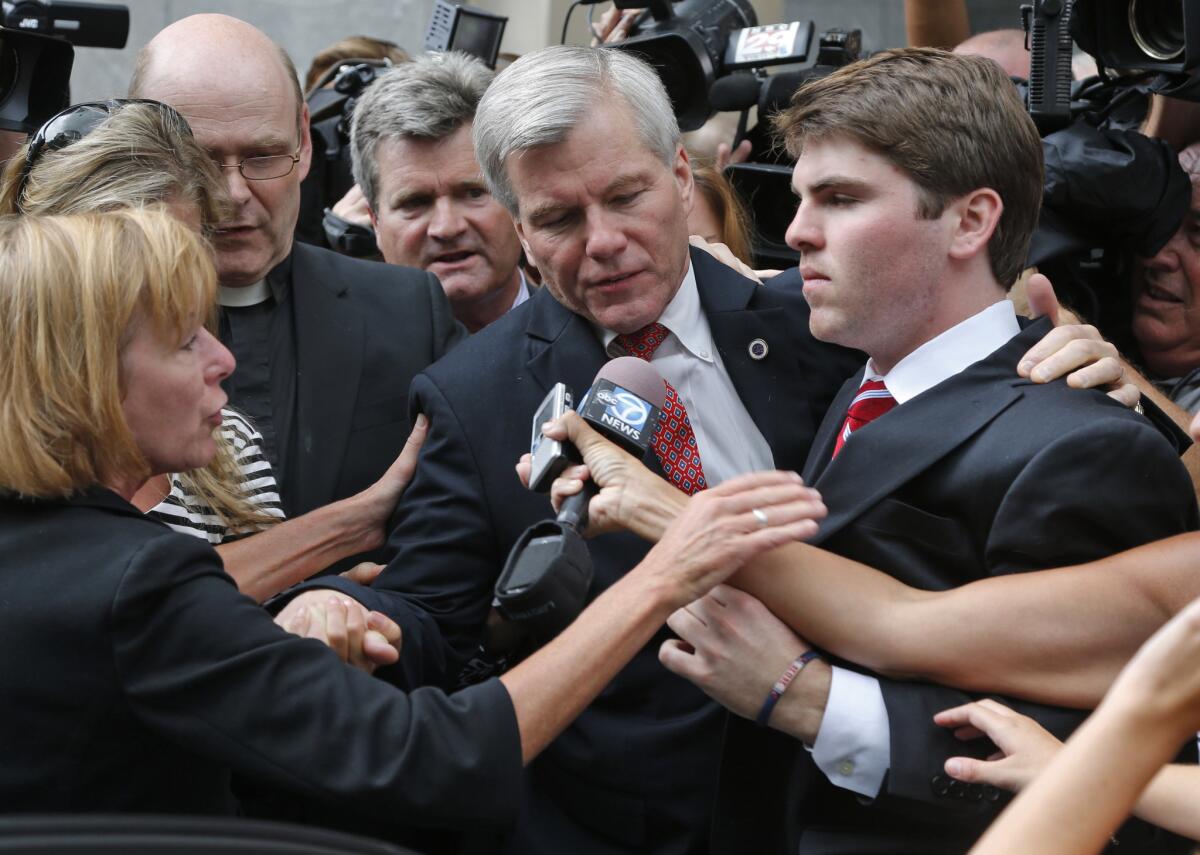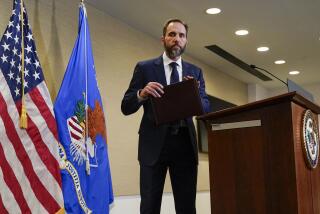Editorial: Moral of Virginia soap opera: Sell your office at your own risk

The trial of former Virginia Gov. Bob McDonnell and his wife, Maureen, had a much higher titillation quotient than most political corruption cases. First, there was the bling factor: The McDonnells were accused of accepting $177,000 in cash, loans and gifts from Jonnie R. Williams, who hoped that the state would assist in marketing a dietary supplement produced by his company. Add the domestic drama of a troubled marriage — so troubled, the defense insisted, that the couple couldn’t conspire to violate the law — and the result was a sordid spectacle. Finally, there was the sensational denouement: conviction on almost all counts.
But stripped of its soap opera melodrama, the McDonnell trial involved a serious breach of the public trust. It’s true that Williams didn’t get all he wanted from the governor or the government, notably state-funded clinical trials of his product, Anatabloc. But McDonnell arranged meetings for Williams with state officials, and the businessman was permitted to hold a promotional luncheon at the governor’s mansion and to help plan a reception at the mansion for leaders of the healthcare industry. Prosecutors noted that the governor emailed state officials asking them to talk to Williams only minutes after McDonnell asked Williams for an extension of a loan.
Defense attorneys contended that Williams received only the sort of consideration that would be extended to any local business and that there was no corrupt bargain. The McDonnells will appeal their convictions. Meanwhile, some critics have accused the prosecutors of abusing their authority and criminalizing conduct that, although tawdry, shouldn’t expose the former governor to criminal punishment.
The criticism is misplaced. It’s true that prosecutors at the state and federal levels exercise enormous power, and sometimes they overreach. (That was the case, for instance, with the indictment of Texas Gov. Rick Perry in connection with his attempts to remove a county district attorney.) In 2010, the Supreme Court reined in federal prosecutors’ use of a law making it a crime to “deprive another of the intangible right of honest services.” The justices rightly ruled that the law should be used only against defendants who had taken part in bribes or kickbacks.
But the McDonnell prosecution met that exacting standard. “That is bribery. That is corruption,” prosecutor David Harbach said, and the jury agreed. And although this case was rich in revelations about shopping sprees, a gubernatorial joy ride in Williams’ Ferrari and a Rolex engraved “71st Governor of Virginia,” it also sent a message to other public officials: Sell your office at your own risk.
Follow the Opinion section on Twitter @latimesopinion
More to Read
A cure for the common opinion
Get thought-provoking perspectives with our weekly newsletter.
You may occasionally receive promotional content from the Los Angeles Times.










